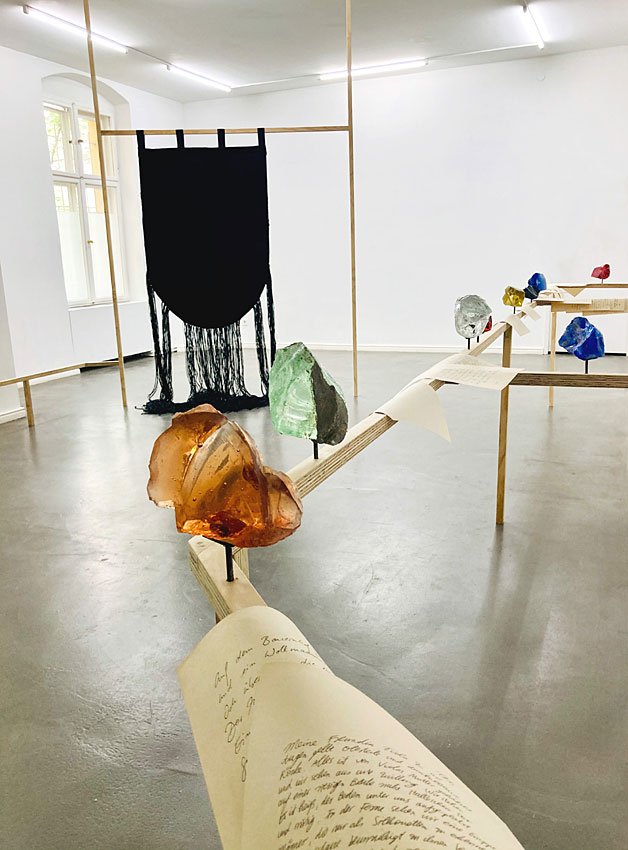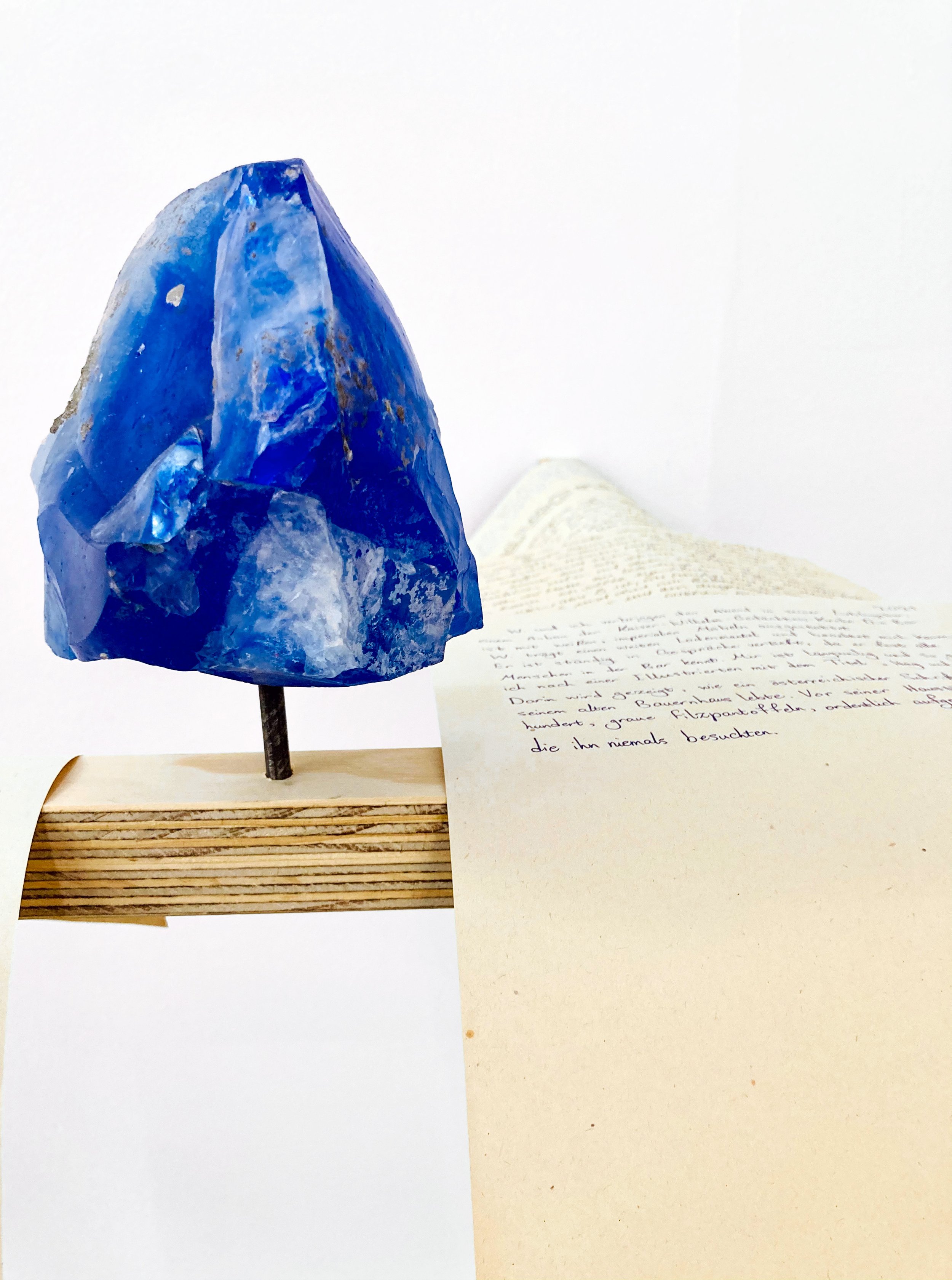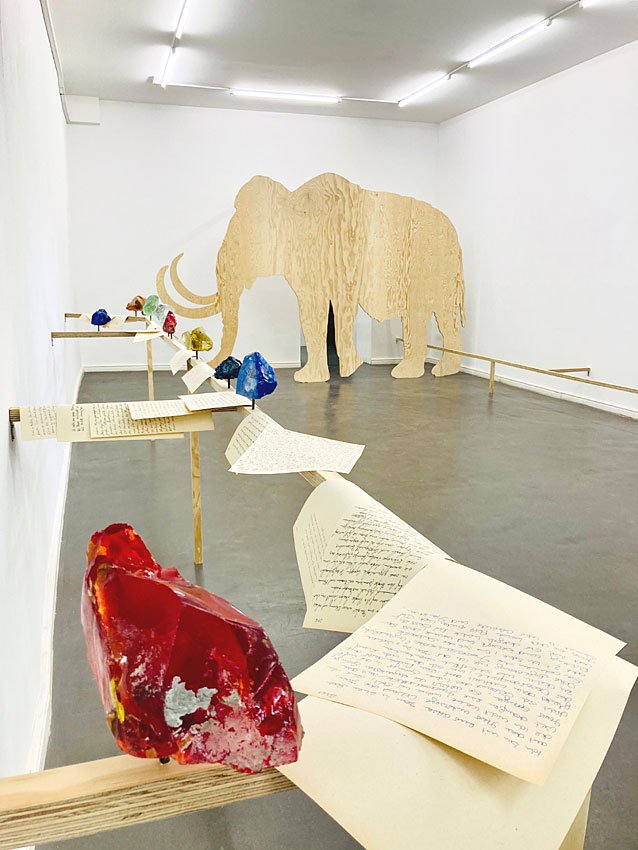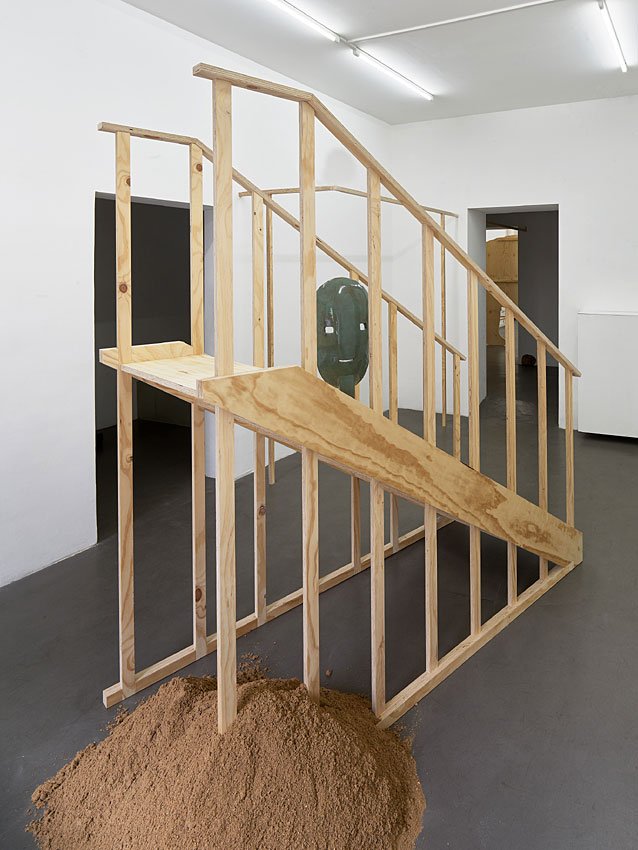Tina Born
Detail from 60 Jahre träumen (60 years of dreaming) (2023)
Excerpts from a collection of texts, DIN A4 papers, ballpoint pen, glass, metal, wood
approx. 300 x 40 x 3 cm
Copyright by the artist. Courtesy Laura Mars Gallery, Berlin
For her 4th solo exhibition at the Laura Mars Gallery, Tina Born presents an expansive installation entitled Gonfanon. The impetus here is dreams—those "hallucinatory" events that take place when the body is at rest. Evading clear interpretations and conclusions, but creating spaces for interpretation and, as it were, those "snippets" that we often only remember after the dream event, the artist arranges sculpture, found and built objects as well as excerpts from a collection of texts. The latter (60 Jahre träumen, 2023) are Born's own dream notes, which she collected over the years and now assigns to dates spanning a period of 60 years. Based on Arthur Rimbaud's statement, "I am another / I am another" or "I am many." Tina Born, in a further step, asked sixty people from her environment to transcribe these notes in their respective handwriting.
Gonfanon is on view until July 29th at Laura Mars Gallery, Bülowstraße 52, 10783 Berlin









 Paul Verlaine
Paul Verlaine